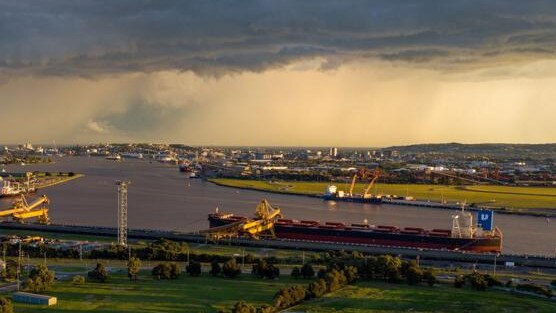ACCC branded ‘far-fetched’ and ‘fanciful’ over Port of Newcastle claims
A federal court judge says there is ‘no chance’ of the Port of Newcastle becoming a container terminal.

Federal Court judge Jayne Jagot has dismissed the competition watchdog as being “fanciful” and “far-fetched” by it claiming that a 50-year ban on the Port of Newcastle becoming a container port is restricting competition.
The Federal Court has thrown out a case brought by the Australian Competition and Consumer Commission, which claimed that restrictions on the Port of Newcastle – the world’s biggest thermal coal port – made it uneconomic for the port to build a container terminal and effectively preserved a monopoly for its southern NSW Ports rivals.
The court issued its judgment late last month but released the reasons behind its findings on Tuesday.
While ACCC chair Rod Sims said the judgment provided an “enormous hurdle” for the thermal coal port to diversify and compete with Port Botany and Port Kembla, Justice Jagot said it was a moot point.
“The current prospect of PON (Port of Newcastle) in fact in the reasonably foreseeable future developing a container terminal at the Port of Newcastle while Port Botany has capacity is fanciful, far-fetched, infinitesimal or trivial,” Justice Jagot said in her 463-page judgment.
“The fact is the Port of Newcastle was not privatised on the basis that it could accommodate a container terminal while Port Botany has capacity – or before a container terminal is developed at Port Kembla.
“It was privatised on the basis that it would not be required – or, by implication, permitted by the state – for a container terminal until Port Botany and Port Kembla had reached capacity which may be after 40 years.”
The case involved agreements, known as the port commitment deeds, which were entered into as part of the privatisation of Port Botany and Port Kembla by the NSW Government in May 2013, for a term of 50 years.
The deeds oblige the State of NSW to compensate the operators of Port Botany and Port Kembla if container traffic at the Port of Newcastle is above a minimal specified cap.
A further 50-year deed, signed in May 2014 when the Port of Newcastle was privatised, requires the port to reimburse the state of NSW for any compensation paid to operators of Port Botany and Port Kembla under the Botany and Kembla deeds.
The ACCC argued the deeds were anti-competitive. It comes as ANZ withdrew financing from the port in February as part of the bank’s new climate change policy that all but bans loans to the coal sector.
This underlined the need for the Port of Newcastle, which later secured financing from NAB – despite it implementing its own green policies – to step up efforts to diversify away from thermal coal.
But Justice Jagot said the compensation provisions did not lock in “a substantial financial disincentive to the State building or approving the development of a container terminal” at the Port of Newcastle.
“Contrary to the ACCC’s submissions, it is not the case that “while PON (like its predecessors) perceives there to be a meaningful commercial opportunity to develop a container terminal at the Port of Newcastle, the effect of the compensation provisions is to impose a material obstacle to such a development”.
“The compensation provisions did not and do not create an anti-competitive incentive for any person because there was and is no real chance … of a container terminal being constructed at the Port of Newcastle while Port Botany has capacity.
“While PON now may perceive a greater need to diversify than in May 2013/May 2014, it is now also the case that Port Botany’s perceived capacity has increased – in the sense that Port Botany will be able to deal with all of NSW’s container handling needs for longer than previously believed – and public and private infrastructure investments have continued to be made on the basis of the State policy.”
Justice Jagot said it also did not make sense to create another container port 170km north of Sydney.
“It is the reality of the location of the Port of Newcastle relative to the population centre of NSW and existing supply chains to and from that population centre compared to the location of Port Botany.
“This reality and the state policy has also resulted in further substantial public – NSW and Commonwealth – and private investment in the existing supply chains servicing the Sydney region. It is apparent that this enormous investment since 2013 has taken place to support the maximisation of Port Botany’s capacity and the facilitation of Port Kembla’s efficient transport linkage to the Sydney metropolitan areas.
“Accordingly, PON would have to grapple not only with all of the issues discussed above, but also the public interest in maximising the value from investments already made and providing consistency and predictability in government decision-making.”


To join the conversation, please log in. Don't have an account? Register
Join the conversation, you are commenting as Logout